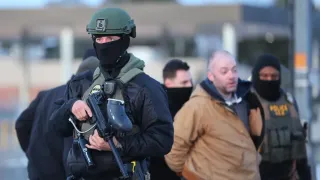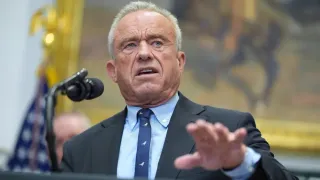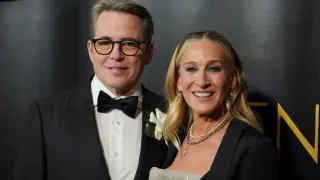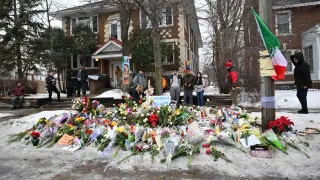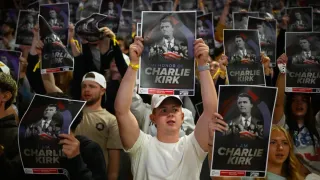November 12, 2024
EDGE Interview: Groundbreaking Queer Filmmaker/Historian Jenni Olson Heads to Harvard for Retrospective
Kilian Melloy READ TIME: 7 MIN.
Queer filmmaker and film historian Jenni Olson will be on hand Nov. 15 – 19 while the Harvard Film Archive presents a series of programs drawn from her extensive collection of LGBTQ+-related shorts, features, trailers, and other cinematic forms. Among the offerings will be some of Olson's own work – most notably, "The Royal Road," an essay in words and images that combine personal romantic musings with California's not-so-discussed colonial past – as well as works that have barely, if ever, been seen in America.
One example: Ann Turner's surreal 1994 Sandra Bernhardt comedy "Dallas Doll," in which a golf champion (who is also somewhat of a sexual charlatan, but perhaps also a visionary) wreaks havoc in an Australian town – especially with the family she's staying with (and seducing, one by one). Another example: The restoration of the all-but-lost 1967 short documentary "Queens at Heart," a film Olson rediscovered and saved from oblivion. In the film, a quartet of trans women open up about their lives in ways that remain instructive and surprising today.
Noting that "In 2012 she was recognized with the prestigious Special Teddy Award at the Berlin Film Festival for her decades of work championing LGBTQ film and filmmakers," the Harvard Film Archive details that the presentation will be split into two parts, the first of which showcases work Olson collected over the course of decades, with the second part dedicated to her own filmography.
For more on the series, entitled "From the Jenni Olson Queer Film Collection,"
follow this link.
EDGE What are you most excited for people to see?
Jenni Olson: There are several features [that are] particularly exciting because they're mostly things that are otherwise unavailable. We're showing my 35-millimeter print of the 1994 Sandra Bernhardt film "Dallas Doll," which has never been released here. Sandra Bernhardt is in her finest form.
EDGE: Another featured selection is your own movie "The Royal Road," a fascinating cinematic essay on California history that you probably didn't learn in school, as well as personal history.
Jenni Olson: Yeah. I'm excited to get to show my own work as a filmmaker. All of my films I shoot on 16-millimeter film, and they are all urban landscapes of California. I'm very interested in telling stories about California history, but in unconventional ways. In the case of the "Royal Road," it's a poetic approach to the history of the Spanish colonization of California and, mixed together with it, butch dyke pining over unavailable women.
EDGE: There's another cinematic essay, a short you made using audio from a recording of Harvey Milk talking about how he knows he might get assassinated. Just as remarkable is you were filming on the set of "Milk," which re-created his camera shop. How did that happen?
Jenni Olson: They actually asked me to do it. When they were going into production, they reached out and said they wanted me to make a film for the website for when the film was going to come out.
The style of my filmmaking is generally these static exterior urban landscapes, and I did try to see about doing exterior landscapes around the Castro, and then decided to do the interior landscapes on the set. They were like, "Yes, you can come shoot the set."
The tape that Harvey made in 1977 when he was elected, which he literally recorded in that room [in his camera shop] – back when I was making "The Joy of Life," my first feature, I had been in touch with Harvey's attorney, and he mentioned that there was this cassette tape that hadn't been digitized. I was like, "My sound guy can digitize it." So, we did, and then gave it to the GLBT Historical Society and other folks. It had been on my phone for years, and I always thought it would be interesting to do something with it because it's so powerful and he was such an inspiring speaker. And, of course, it's so chilling, what he's saying, that he knows that he could get assassinated.
So, when they asked, I was like, "Oh my God, I have that audio. I'm gonna do something with the audio and with the camera shop." It was an incredible honor, and a sense of responsibility, to be asked to make something that's going to represent one of the greatest heroes of our movement.

